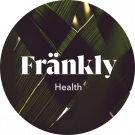What is Tetrahydrocannabinol (THC)?

The cannabis plant has over 100 different types of cannabinoids but there are a few that have generated more interest than others. THC is one of them. Used for its therapeutic benefits, THC has made a name for itself all around the globe. You’d be hard-pressed to come across someone that hasn’t at least heard of the acronym before.
But with the buzzword lingering on everyone’s lips, what THC really is might still be a mystery. So let’s crack that one today and dive into the differences between it and Cannabidiol (CBD), its benefits and possible side effects.
What is THC?
THC is a cannabinoid and the main psychoactive ingredient in cannabis. This means that it can alter your brain’s activity. The main effect you’re likely to experience is a feeling of euphoria. Just like CBD, THC interacts with our natural Endocannabinoid System (ECS), a collection of complex nerves that signal the body to regulate different functions. These include regulating sleep, pain and even immune responses.
THC works by binding itself to the receptors in the ECS and boosting its functioning. This allows your body to optimally reach a state of homeostasis if anything has been out of balance.
What are the benefits of THC?
THC can be found in CBD oils, capsules and edibles depending on the type of CBD. That is whether it is full-spectrum or not. It is packed with phytonutrients that add health benefits to these products.
The therapeutic benefits of THC include:
-
- Reducing pain
- Managing muscle spasticity
- Reducing nausea
- Easing anxiety
- Increasing appetite
- Improving sleep
- Reduce inflammation
Are there any side effects of THC?
A noteworthy effect of THC is its psychoactive properties. Apart from that, THC is generally well-tolerated and doesn’t pose a health risk. However, it can have interactions with other medications so it’s best to consult a medical practitioner if you’re already on any prescribed medications.
There is also a chance that you could experience temporary side effects when using THC like:
-
- Dry mouth
- An increased heart rate
- Forgetfulness
- Slower reaction times
- Red eyes
- Coordination issues
- Cold sweats
While taking THC, you may feel relaxed, have a heightened sensory perception, have an altered perception of time and have an increased appetite.
How can you take THC?
There are different ways you can get your dose of THC and what matters is your preference and purpose. You can:
- Inhale it: this is the quickest method of delivery which means you’ll feel the effects almost straight away. However, it may not be the healthiest and safest way to do so.
-
- Take it orally: THC can be found in oils, tinctures, capsules and edibles. You can ingest these but you might find that it takes a bit longer to feel the effects depending on your metabolism. THC has to do the first pass effect so it has to be broken down by the digestive system first before it reaches the circulatory system. But this is also an advantage because you’ll feel the effects for longer.
-
- Apply it topically: if you’d like a localised treatment for pain and inflammation, you can apply THC directly to your skin. You can also find it in lotions, balms and other skin products.
How much THC should you consume?
Usually, when a CBD product contains THC, it will only be in a concentration of 0.3% to 0.5% which is not extremely potent. When it comes to dosing, the best solution is to start with the lowest amount and then work your way up from there. If you feel like you need a higher dose to treat your condition, try increasing the amount in small increments until you find the perfect balance. It is recommended that you start with 2.5 milligrams of THC and never exceed 40 milligrams a day, else that could have health risks.
Is there a difference between THC and CBD?
Yes, there is a difference between THC and CBD. CBD is another famous cannabinoid, or phytochemical derived from the cannabis sativa plant. THC comes from a cannabis plant too, but a different species. So CBD also has many health benefits but there are some major differences when it comes to comparing it with THC. For starters, CBD has no known psychoactive properties so you won’t feel high when you take it. Pay attention to the ingredients in your CBD product though because some contain THC and some don’t.
Another difference is the health benefits. Although they both share quite a few similar ones, THC doesn’t ease depression or help with decreasing epileptic seizures like CBD. THC also increases appetite whereas CBD doesn’t.
The two compounds can show up differently in drug tests. CBD is typically not screened because it doesn’t have intoxicating effects. But THC can show up in a drug test. It also stays in the system long after use so you can test positive up to 30 days later.
Differences between THC and CBD
|
Characteristics |
THC |
CBD |
|
Derived from Cannabis sativa |
No |
Yes |
|
Has psychoactive properties |
Yes |
No |
|
Shows up in a drug test |
Yes |
No |
|
Can ease depression |
No |
Yes |
|
Can increase appetite |
Yes |
No |
|
Can reduce epileptic seizures |
No |
Yes |
Final thoughts
THC and CBD may be used synonymously but it’s important that you don’t mix up the two. They have varying benefits and effects and you should look at both to find which suits your lifestyle and treatments better.














